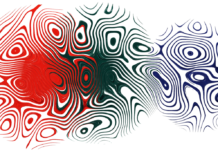Industry 4.0, a term synonymous with the fourth industrial revolution, represents a transformative era characterized by the convergence of digital, physical, and biological technologies. It marks a fundamental shift in the way we perceive and conduct industrial operations, manufacturing processes, and even daily life. Industry 4.0 leverages a plethora of innovative technologies such as the Internet of Things (IoT), artificial intelligence (AI), big data analytics, robotics, augmented reality (AR), and additive manufacturing to optimize operations, enhance efficiency, and drive profound changes across industries. This industrial revolution is not just about automating processes but about integrating intelligence and data-driven decision-making at every stage of the value chain.
At the heart of Industry 4.0 lies the concept of interconnectedness, both vertically and horizontally. Vertically, it encompasses the seamless integration of processes, systems, and data flow across various layers of an enterprise, from the shop floor to the executive boardroom. Horizontally, it signifies collaboration and integration among different stakeholders within and across organizations, including suppliers, manufacturers, logistics partners, and customers. This integration, facilitated by digital technologies, fosters an ecosystem where real-time data sharing and analysis enable more informed decision-making, agile responses to market demands, and enhanced flexibility in production processes.
The foundation of Industry 4.0 is built upon interconnected cyber-physical systems (CPS) that enable intelligent communication and interaction between physical machines and digital platforms. These systems are equipped with sensors and actuators that gather real-time data from the physical world. This data is then analyzed using advanced analytics and AI algorithms to derive actionable insights, enabling predictive maintenance, process optimization, and even creating new business models. For instance, in a smart factory, sensors on manufacturing equipment can monitor machine health, detect anomalies, and predict when maintenance is required, reducing downtime and increasing operational efficiency.
Industry 4.0 encompasses a wide array of applications across industries. In manufacturing, smart factories equipped with IoT-enabled devices and AI-powered analytics optimize production lines, predict maintenance needs, and minimize resource wastage. Through digital twinning, a concept central to Industry 4.0, virtual models of physical products and processes are created to simulate and analyze their behavior, facilitating better design, testing, and development. Additionally, 3D printing, an additive manufacturing technique, is gaining prominence, enabling rapid prototyping, customized production, and reduced material wastage.
In the healthcare sector, Industry 4.0 is revolutionizing patient care through telemedicine, remote patient monitoring, and personalized treatment plans. Wearable devices and health sensors connected to the IoT collect and transmit vital health data to healthcare providers, ensuring timely interventions and enhanced patient outcomes. AI-powered diagnostic tools analyze medical imaging and patient data, aiding in early disease detection and precise treatment planning. Furthermore, in agriculture, smart farming techniques driven by IoT sensors and AI help optimize crop yields, reduce resource usage, and improve overall farm management.
However, the adoption of Industry 4.0 is not devoid of challenges. Privacy and security concerns, data interoperability, and the skills gap in the workforce are critical obstacles. Addressing these challenges necessitates robust cybersecurity measures, standardized communication protocols, and comprehensive training programs to equip the workforce with the skills required for the digital era.
Industry 4.0 represents a monumental shift in how industries operate, innovate, and interact with the world. It is a convergence of technologies that has the potential to not only enhance efficiency and productivity but also address critical global challenges, from climate change to healthcare access. The journey of Industry 4.0 is a dynamic and ongoing one, with advancements and innovations constantly shaping its trajectory. As businesses and society at large embrace this revolution, we can expect to see a future that is smarter, more sustainable, and profoundly interconnected, enabling a new era of industrial growth and human progress.
The transformation brought about by Industry 4.0 extends beyond mere technological advancements. It encompasses a paradigm shift in the way businesses approach operations, sustainability, and customer engagement. By leveraging the power of data and connectivity, companies can tailor products and services to meet individual customer needs and preferences. This level of customization enhances customer experiences and fosters brand loyalty. Furthermore, Industry 4.0 places a strong emphasis on sustainability. Through data analytics, organizations can optimize resource utilization, reduce energy consumption, and minimize waste, contributing to a more sustainable future. The integration of renewable energy sources and smart grid systems is becoming increasingly common, illustrating the commitment of Industry 4.0 to environmental responsibility.
One of the central tenets of Industry 4.0 is the concept of “smart everything,” where everyday objects and processes are infused with intelligence through embedded sensors and data analytics. This interconnectedness facilitates a seamless flow of information across the entire value chain. For instance, in retail, smart shelves equipped with sensors can monitor product levels and automatically place orders when inventory is low. This real-time inventory management not only streamlines operations but also ensures products are always available for customers. Similarly, in logistics and transportation, IoT-enabled vehicles and infrastructure can optimize routes, monitor cargo conditions, and reduce fuel consumption, resulting in cost savings and a reduction in the carbon footprint.
The advent of Industry 4.0 also brings about shifts in workforce dynamics. While automation may replace some jobs, it also creates new roles and demands a different skill set. There is a growing need for a workforce proficient in data analytics, AI, cybersecurity, and digital literacy. Reskilling and upskilling programs are imperative to equip the existing workforce with the competencies required in the Industry 4.0 landscape. Moreover, collaboration and partnerships between academia, industry, and governments are essential to ensure that education and training programs are aligned with the evolving industry needs.
As Industry 4.0 continues to evolve, it is essential to recognize and mitigate the ethical implications that arise from its widespread adoption. Privacy concerns, data ownership, and biases in AI algorithms are critical aspects that demand careful consideration. Regulations and frameworks must be developed to ensure that the deployment of Industry 4.0 technologies adheres to ethical standards and protects the rights and privacy of individuals.
In conclusion, Industry 4.0 is an era of unparalleled technological advancement, integration, and innovation. Its impact extends across industries, reshaping the way we live, work, and interact. As we embrace this revolution, it is crucial to steer its trajectory towards a future that is not only technologically advanced but also inclusive, sustainable, and ethically responsible. The journey of Industry 4.0 is a dynamic and collaborative one, offering immense potential for growth, efficiency, and a better quality of life. By leveraging its capabilities judiciously, we can create a world that is smarter, more connected, and ultimately, more humane.






















